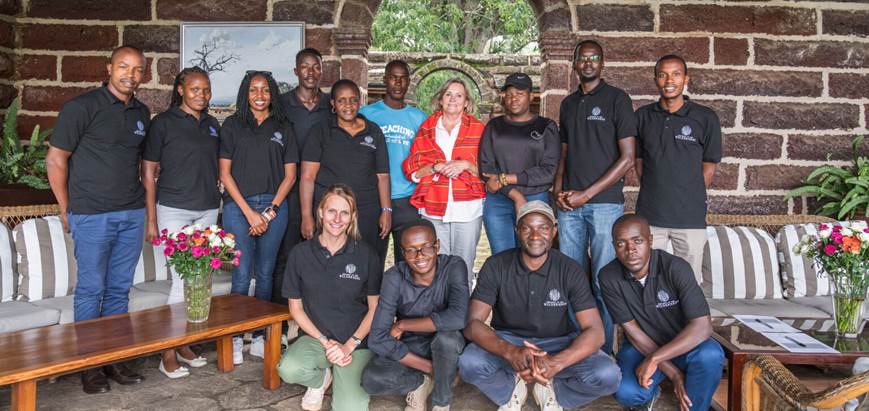Wilderness’ non-profit community programme, Children in the Wilderness (CITW), has officially launched in Kenya and Tanzania. With more than two decades of successfully running the programme in Southern Africa, and Rwanda since 2018, the CITW programme is now fully operational in Kenya, managed by our partner Governors’ Camp Collection, and in Tanzania by Wilderness.
“Children in the Wilderness is the flag-bearer for the Educate pillar of Wilderness’ Impact strategy, its programmes focusing on the next generation of rural decision makers”, noted CITW Group Co-ordinator, Lindy Nieuwenhuizen. “It is one of the few programmes facilitating sustainable conservation through leadership development of African children in rural areas near wildlife reserves and national parks, aiming to bridge the divide that exists between communities and wildlife”.
Through immersive wilderness experiences, educational workshops, and community outreach initiatives, CITW instils a deep appreciation for natural heritage in children, while equipping them with the knowledge and skills to become future conservation leaders.
The CITW programme is managed by Eco-Mentors who run Eco-Clubs at partner schools; these environmental clubs introduce primary school children to the programme. The Eco-Clubs are followed by Youth Environmental Stewardship (YES) Clubs, aimed at secondary school students who continue to show an interest in conservation and the environment.
Veteran CITW Manager in Wilderness’ Zambezi Region, Sue Goatley, led workshops for the new Eco-Mentors in the two countries during June 2024. These Eco-Mentors are local community members, teachers, and in some instances, camp staff, who attended the comprehensive training sessions – held in Kenya’s Masai Mara and Loldia House in Laikipia County, and at Manyara Secondary School outside Lake Manyara National Park in Tanzania.
Community and educational outreach programmes have naturally been in place in Kenya and Tanzania through our partners for some time already, but with the formal implementation of the CITW curriculum now, even more impactful projects have been initiated.
The goal is to expose children to wildlife and environmental conservation in an engaging and compelling way, in order to create positive long-term perceptions towards wildlife and wild spaces. Other activities include clean-up events, conservation talks, debates and discussions, game drives, screenings and discussions of wildlife films and documentaries.
In Kenya, CITW is managed by Alisa Karstad, Governors’ Impact Manager, who facilitates the support of vulnerable school children across its areas of operation – from providing the TAFA Foundation with football uniforms and field trips to conservation projects supported by Governors’, to memberships to the Wildlife Clubs of Kenya for 30 new Mara Rianda Primary School students.
Building on the thriving foundation of Wilderness Tanzania’s Community Liaison Doctor Tipay’s impact work in a number of communities, the CITW programme here formally commenced with Sue’s Eco-Mentor workshops. From partner school Eco-Clubs showcasing their successful reforestation efforts outside Serengeti National Park to productive vegetable gardens outside Lake Manyara National Park, the students and mentors are justifiably delighted at their environmental achievements in this East African safari hub.
“We could not be more pleased at having officially launched CITW in these two countries, adding meaningful members to the approximately 2 500 children who participate in Eco-Clubs at present”, concluded Lindy. “Over time we look forward to the newest members graduating to the next level of environmental clubs while at secondary school through the YES Club programme. CITW was founded over 23 years ago, and we are extremely proud to note that to date, at least 11 374 children have attended Eco-Clubs over the decades – given the multiplier effect of the children’s learnings in their communities, this has a significant impact indeed”.

